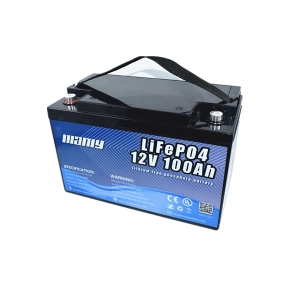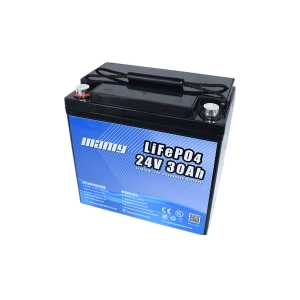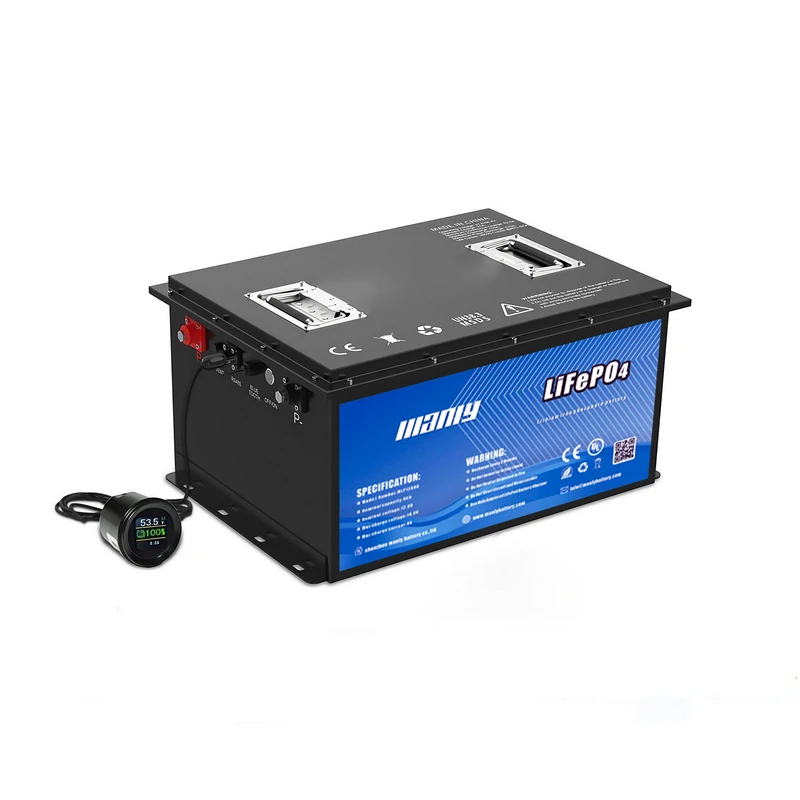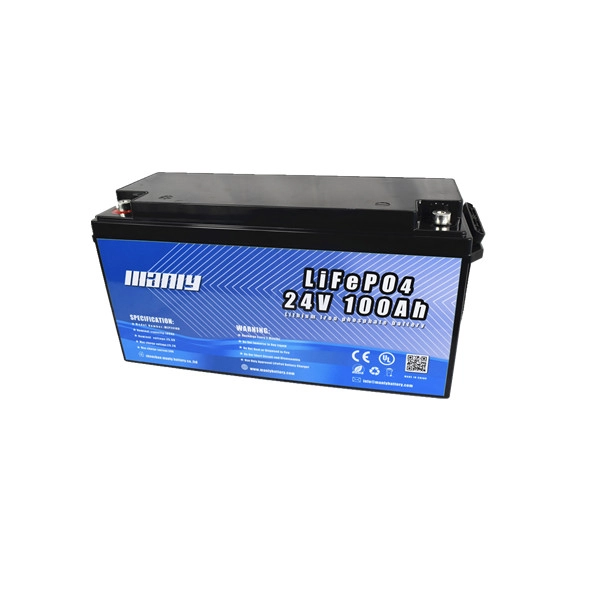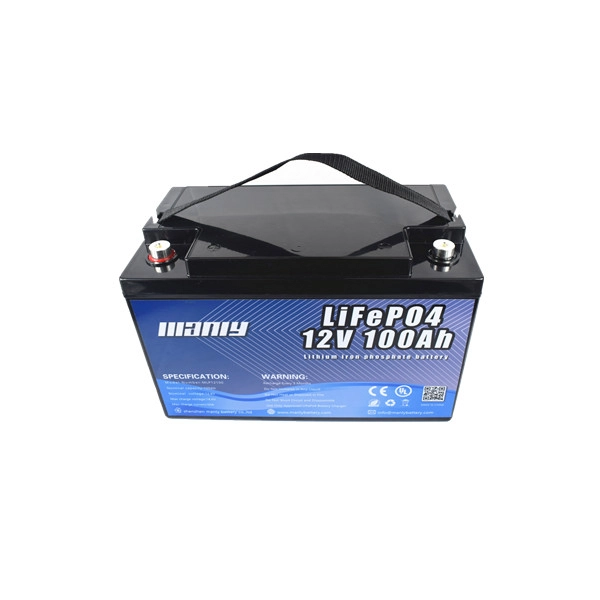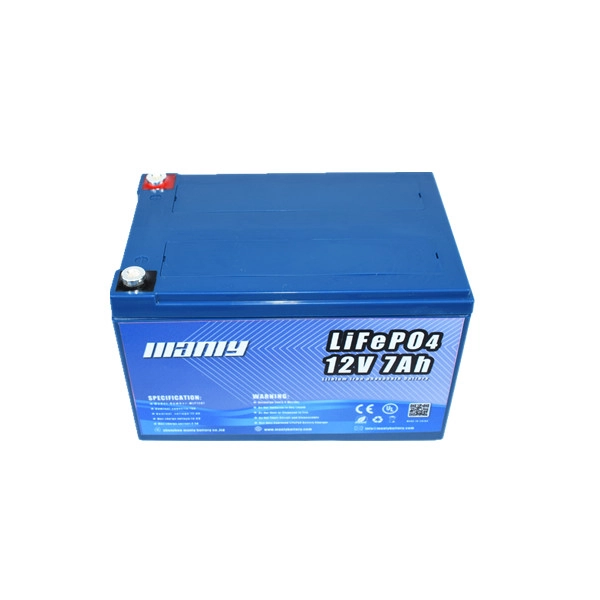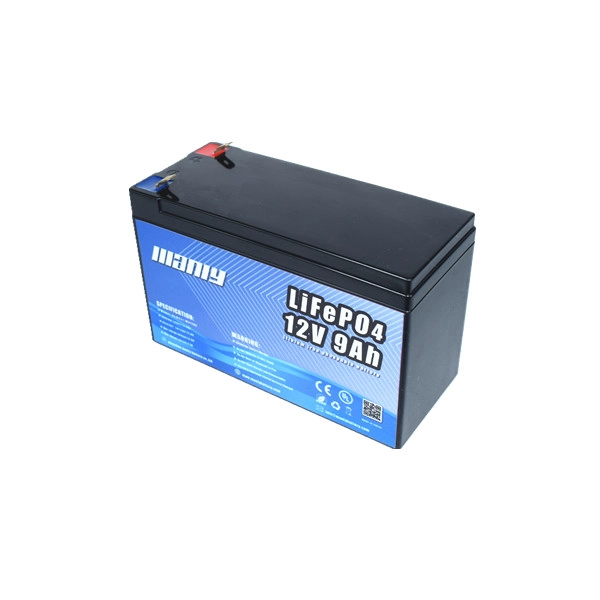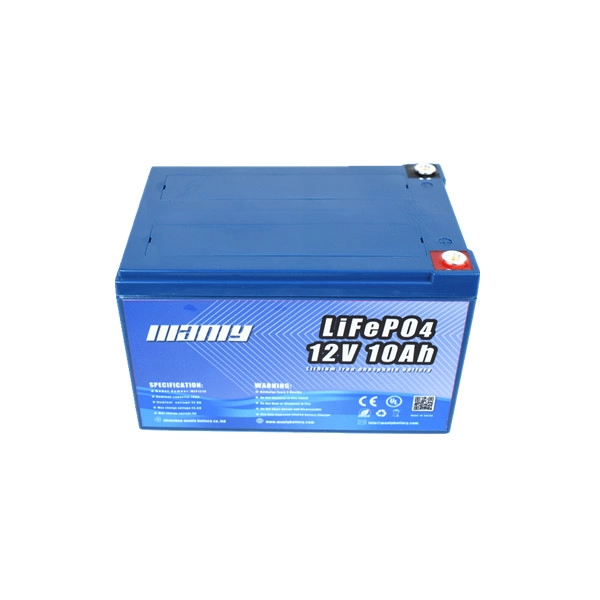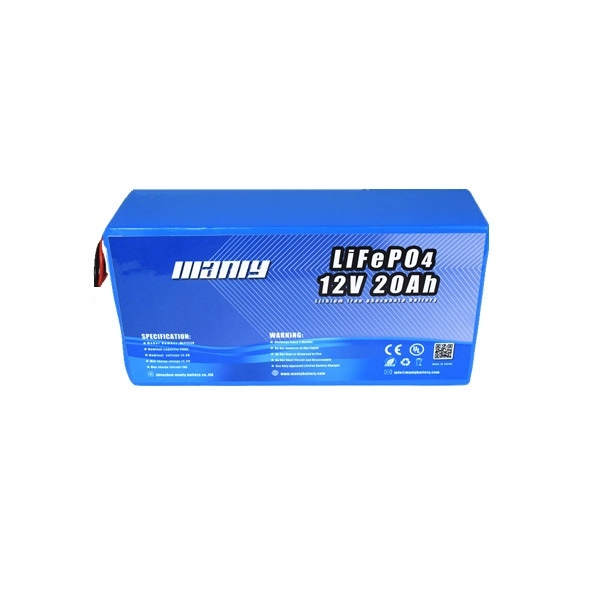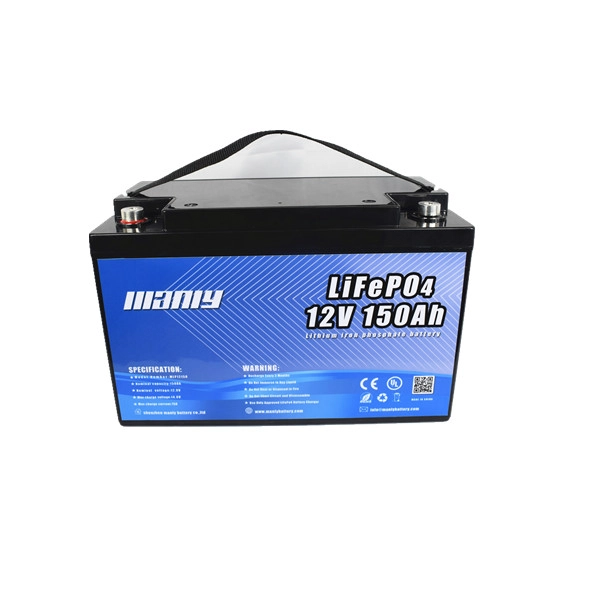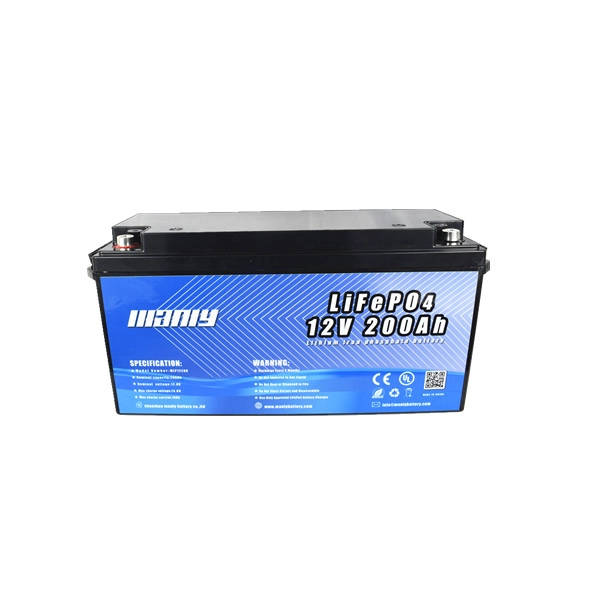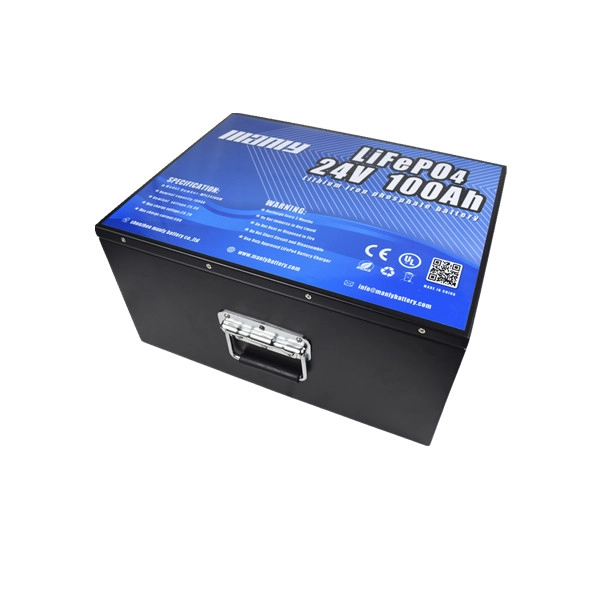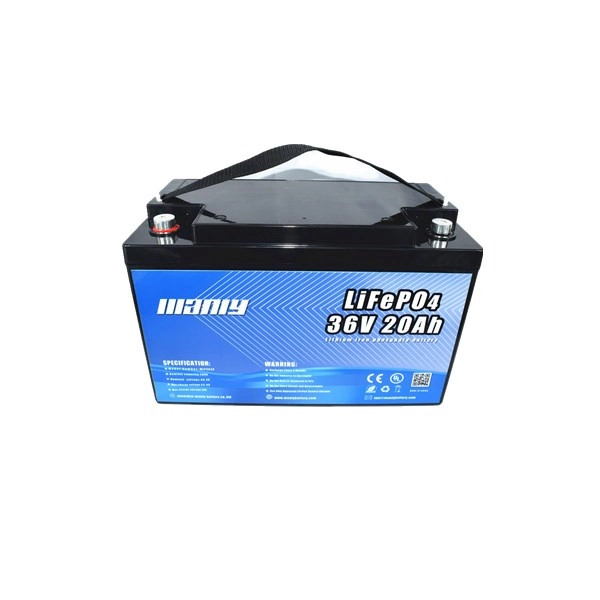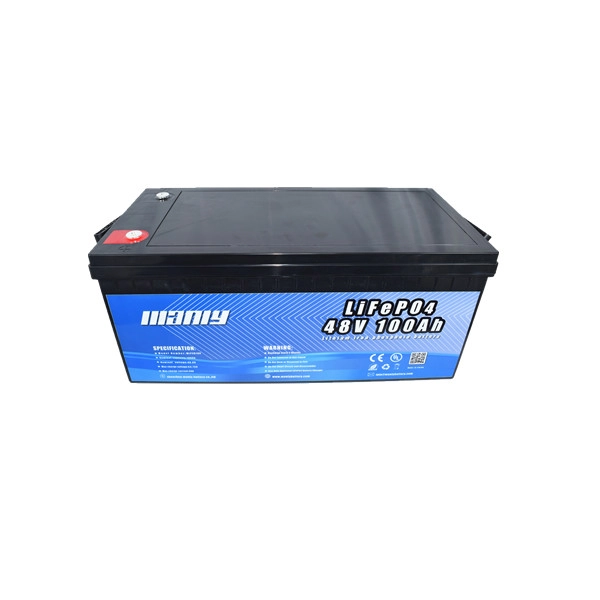2024 Quanto pesa una batteria marina?
Sommario
- 2024 Quanto pesa una batteria marina?
- Importanza del peso della batteria nelle applicazioni marine
- Le opzioni di batteria marina più leggere
- Intervalli di peso tipici per le batterie marine
- Quanto pesa una batteria da 12 V per barca?
- Differenze di peso tra i tipi di batterie
- Pesi di batterie marine di varie dimensioni
- Differenze di peso tra le batterie marine di avviamento e quelle a ciclo profondo
- Una batteria completamente carica pesa di più?
- In che modo il peso della batteria influisce sulle prestazioni marine
- Confronto del peso tra batterie marine a celle umide e a celle secche
- Come confrontare il peso della batteria marina con il peso della batteria dell'auto e del camper
- Calcolo del peso totale della batteria dell'imbarcazione
- Scegliere tra peso, prestazioni e costo nelle batterie per barche
- Produttore di batterie per barche
- Conclusione
- Ulteriori informazioni sulla batteria
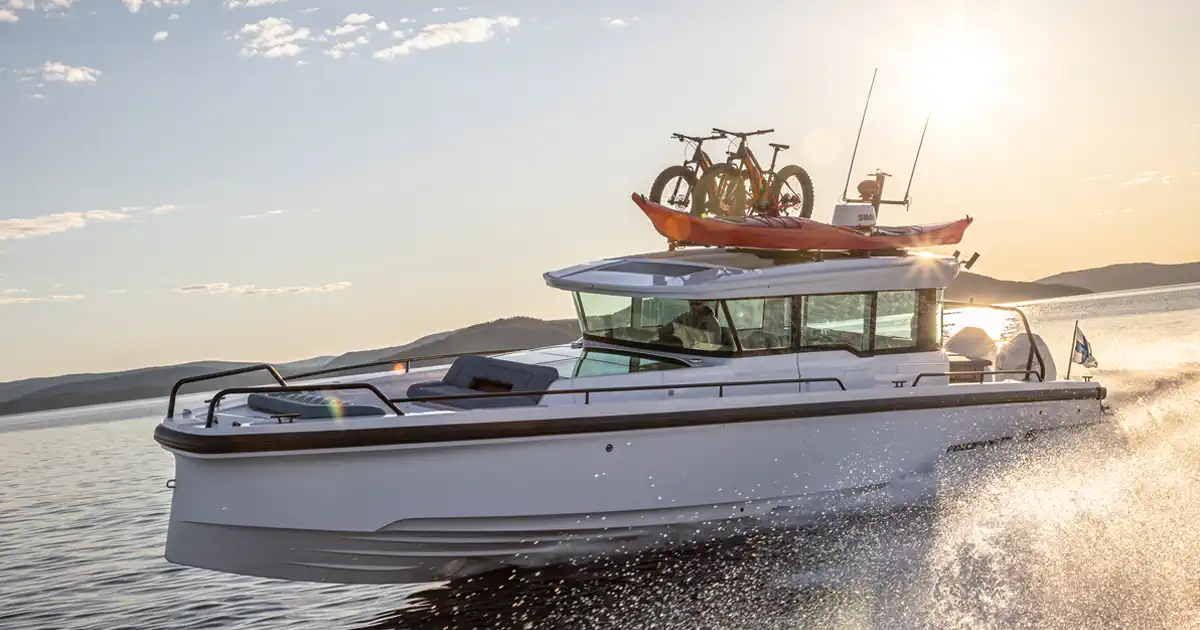
Importanza del peso della batteria nelle applicazioni marine
When it comes to marine applications, battery weight plays a crucial role in overall performance. Heavier batteries can slow down a boat and make it harder to maneuver, especially for smaller vessels like kayaks and canoes. Excess weight raises the boat’s center of gravity, increasing the risk of tipping and instability. Additionally, a heavier battery requires counterbalancing, which adds even more weight. This extra load reduces the power-to-weight ratio, causing the engine to work harder and leading to higher fuel consumption and lower efficiency. Even a small reduction in battery weight can significantly enhance speed and handling, especially for boats under 20 feet. Keeping batteries lightweight is essential for improving performance and safety across all types of marine craft.Le opzioni di batteria marina più leggere
The lightest marine battery option currently available is the marine lithium battery. These batteries can weigh 60-70% less than comparable lead-acid batteries with similar capacities. For example, a 100Ah lithium boat battery might weigh between 20-30 pounds, while a lead-acid counterpart could weigh anywhere from 60 to 100 pounds. This substantial difference makes lithium boat batteries the ultimate choice for weight-conscious boaters. A comparison of typical 100Ah battery weights highlights this advantage:- Ioni di litio:20 – 35 libbre
- Acido al piombo AGM:60 – 80 libbre
- Gel di piombo acido:60 – 80 libbre
- Acido al piombo in celle umide:80 – 120+ libbre
Intervalli di peso tipici per le batterie marine
Marine batteries vary significantly in weight depending on their type and specifications. Understanding the typical weight range can help boaters choose the right boat battery for their needs. Here’s a breakdown of the expected weights for different battery types:- Ioni di litio:16 – 32 libbre
- Acido al piombo AGM:30 – 60 libbre
- Gel di piombo acido:35 – 75 libbre
- Piombo-acido (cella umida):50 – 120+ libbre
Quanto pesa una batteria da 12 V per barca?
The weight of a Batteria 12V per barcal'utilizzo può variare in base alla tipologia e alla capacità. In generale, ecco cosa puoi aspettarti:- Batterie per barche al litio 12V:Circa 20 – 35 libbre
- Batterie AGM 12V:In genere pesano tra 30 e 60 libbre
- Batterie al gel 12V:Generalmente vanno da 35 a 75 libbre
- Batterie a celle umide da 12 V:Può pesare tra 50 e 120+ libbre
Tipi di batterie per barche da 12 V
There are several types of Batterie per barche 12Vdisponibili, ognuno con caratteristiche uniche:- Batterie al litio:Nota per essere la batteria marina più leggera, offre un'elevata densità di energia e una lunga durata.
- Batterie AGM:Forniscono buone prestazioni e sono a prova di fuoriuscite, ma sono più pesanti del litio.
- Batterie al gel:Simili agli AGM, sono sicuri e affidabili ma sono comunque più pesanti.
- Batterie a celle umide:L'opzione tradizionale, sono le più pesanti e meno efficienti rispetto alle alternative al litio.
Tutte le batterie marine sono a 12 V?
Not all marine batteries are 12V. While many smaller boats utilize 12V systems, larger vessels may use higher voltage batteries, such as 24V or 48V, for their power needs. The choice of voltage depends on the boat’s size, required power output, and electrical system design.Fattori che influenzano il peso della batteria
Several factors influence peso della batteria, Compreso:- Tipo di batteria:Le batterie al litio sono generalmente molto più leggere delle opzioni al piombo.
- Capacità:Le batterie con capacità maggiore tendono a pesare di più a causa della maggiore quantità di materiali utilizzati.
- Design:I materiali utilizzati nella costruzione, come le piastre di piombo nelle batterie tradizionali, contribuiscono in modo significativo al peso.
- Dimensione del gruppo:Le diverse dimensioni delle batterie marine hanno dimensioni specifiche che influiscono sul loro peso complessivo.
Confronto tra le batterie per barche più pesanti e quelle più leggere
When comparing the heaviest and lightest options:- Batteria marina più leggera:Le batterie al litio sono all’avanguardia, con alcuni modelli che pesano appena 16 libbre per capacità equivalenti.
- Batteria per barca più pesante:Le tradizionali batterie al piombo acido possono superare le 120 libbre, soprattutto in gruppi di dimensioni più grandi come il Gruppo 31.
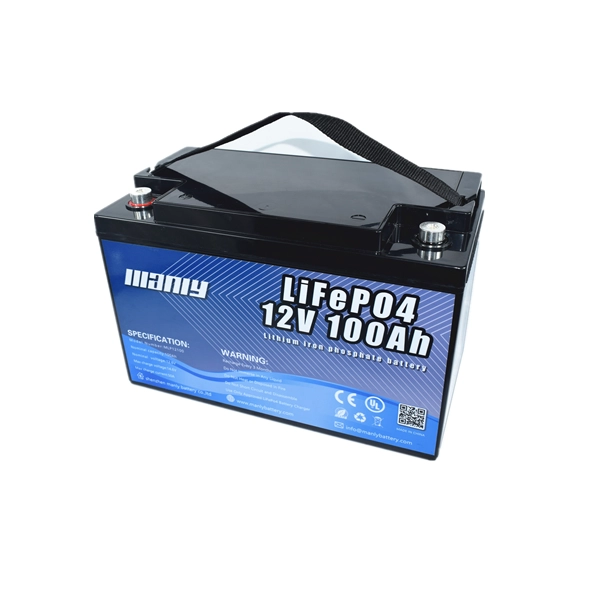
Differenze di peso tra i tipi di batterie
Understanding the weight differences between various battery types is crucial for selecting the right marine battery for your vessel. Each type has its own characteristics that affect battery weight, making it essential to choose wisely.Pesi per batterie al piombo
Flooded lead-acid batteries are the heaviest among marine batteries. Typically, their weights range from 50 to over 120 pounds, depending on the specific group size. For example, a group 31 battery weight can easily reach 70-90 lbs. This significant weight is due to the dense lead plates and liquid sulfuric acid inside, making them less suitable for weight-sensitive applications.Pesi delle batterie AGM
Absorbed Glass Mat (AGM) batteries are a popular choice for many boaters. They generally weigh between 30 and 60 pounds, making them lighter than traditional lead-acid batteries but still heavier than marine lithium batteries. AGM batteries offer good performance and are spill-proof, but their weight can impact overall boat agility.Pesi per batterie al gel
Gel batteries are similar to AGM in weight, typically ranging from 35 to 75 pounds. These batteries contain a gel electrolyte, making them safer and less prone to leaks. However, they still don’t match the lightweight nature of lithium options. Their weight can be a consideration for smaller boats where every pound counts.Pesi per batterie agli ioni di litio
Lithium-ion batteries are the lightest marine battery option available today. Weighing between 16 and 32 pounds, they provide substantial weight savings compared to lead-acid and AGM batteries. For instance, a 100Ah lithium boat battery can weigh as little as 20-30 lbs, significantly enhancing performance and efficiency. The lightweight design and higher energy density make lithium batteries an ideal choice for modern marine applications.By comparing these weights, boaters can make informed decisions based on their specific needs, balancing battery weight with performance and capacity.Pesi di batterie marine di varie dimensioni
The weight of batterie marinepossono variare in modo significativo a seconda delle dimensioni del gruppo, che si riferisce alle loro dimensioni fisiche: lunghezza, larghezza e altezza. Comprendere questi pesi è vitale per scegliere quello giustobatteria della barcaper la tua imbarcazione. Ecco le dimensioni comuni dei gruppi e i loro pesi tipici:- Gruppo 24:Generalmente pesa tra 50 e 70 libbre. Questa dimensione è popolare per le imbarcazioni più piccole e spesso utilizzata per applicazioni di avviamento e di ciclo profondo.
- Gruppo 27:In genere pesa circa 60-80 libbre. Questo gruppo è leggermente più grande e fornisce più potenza, rendendolo adatto a imbarcazioni di medie dimensioni.
- Gruppo 31:Una scelta comune per le imbarcazioni più grandi, il peso della batteria del gruppo 31 varia da 70 a 100 libbre. Queste batterie sono spesso utilizzate per applicazioni a ciclo profondo grazie alla loro capacità.
- Gruppo 8D:Questa è una delle opzioni più pesanti, con un peso compreso tra 100 e 120 libbre. Viene utilizzato principalmente nelle imbarcazioni più grandi che richiedono una potenza notevole.
Differenze di peso tra le batterie marine di avviamento e quelle a ciclo profondo
Starting and deep cycle batteries serve different purposes, and their weights reflect these differences.Starting Batteries are designed to provide a short burst of high current to start an engine. They typically weigh less than deep cycle batteries because they have thinner plates and are built for quick discharge. A lightweight boat battery of this type might weigh around 30 to 60 lbs, depending on the group size.Deep Cycle Batteries, on the other hand, are built to provide sustained power over a longer period. These batteries are generally heavier, often weighing between 50 and 120 lbs. Their thicker plates allow for deeper discharges and longer usage times. For instance, a group 31 battery weight for a deep cycle option can reach the higher end of that range, making it more suitable for powering electronics and other equipment over time.Understanding the weight differences between these battery types can help boaters choose the right option for their specific needs, balancing weight with performance and capacity requirements.Una batteria completamente carica pesa di più?
The question of whether a fully charged battery weighs more is an interesting one. In general, a batteria della barcanon cambia significativamente il peso quando è completamente carico rispetto a quando è scarico. Le reazioni chimiche che avvengono all'interno della batteria non aggiungono né rimuovono alcun materiale; cambiano semplicemente lo stato dell'elettrolita. Pertanto, che si tratti di una batteria marina o di batterie marine al litio, il peso rimane effettivamente lo stesso, indipendentemente dal livello di carica.In che modo il peso della batteria influisce sulle prestazioni marine
Battery weight has a direct impact on marine performance. A lighter battery, such as the lightest marine battery options available, can enhance speed, maneuverability, and fuel efficiency. For smaller vessels, a lightweight boat battery can improve responsiveness, making it easier to navigate and control the boat. Excessive battery weight can raise the boat's center of gravity, making it more prone to tipping and less stable, which can compromise safety.For larger boats, while they may accommodate heavier batteries better, excess weight still affects overall performance. It can reduce the engine's efficiency, requiring more fuel to maintain speed and leading to slower acceleration. This is particularly important for boaters looking to optimize their vessel's performance for long trips or competitive situations.By choosing the appropriate battery weight, boaters can ensure better handling, improved speed, and enhanced overall performance on the water.Confronto del peso tra batterie marine a celle umide e a celle secche
Yes, there is a notable weight difference between wet-cell and dry-cell marine batteries. Wet-cell batteries, such as traditional flooded lead-acid types, tend to be heavier due to the liquid electrolyte they contain. Their weight can range from 50 to over 120 lbs, making them some of the heaviest options available. In contrast, dry-cell batteries, including AGM (Absorbed Glass Mat) and lithium boat batteries, are generally lighter. For example, AGM batteries typically weigh between 30 and 60 lbs, while marine lithium batteries can weigh as little as 16 to 35 lbs. This significant difference in battery weight makes dry-cell options more favorable for those looking to reduce the overall weight of their vessel, enhancing performance and maneuverability.Come confrontare il peso della batteria marina con il peso della batteria dell'auto e del camper
When comparing marine battery sizes to car or RV batteries, it's essential to consider their specific applications and weight ranges. Car batteries are generally similar in weight to smaller marine batteries, typically ranging from 30 to 50 lbs. However, larger RV batteries, especially those designed for deep cycle use, can weigh significantly more, often between 60 and 120 lbs, similar to heavier marine batteries like group 31 battery weight options.In summary, while there are overlaps in weight categories, marine batteries tend to be designed for different use cases, focusing on weight distribution and performance in watercraft. The lighter options in the marine category, particularly lithium boat batteries, offer distinct advantages in performance compared to the traditional heavyweights found in automotive and RV applications. By choosing the right battery weight for their needs, boaters can optimize performance while maintaining the balance and efficiency of their vessels.Calcolo del peso totale della batteria dell'imbarcazione
When planning for a boat battery system, understanding the battery weight is crucial for overall vessel performance. To calculate the total battery weight, start by identifying the number of batteries you'll use and their individual weights. For instance, if you’re using a group 31 battery, which typically weighs around 70-80 pounds, multiply this weight by the number of batteries. Additionally, consider the marine battery sizes and marine battery dimensions to ensure they fit properly in your boat’s designated battery compartment. Always include any extra weight from accessories, such as connectors or mounting hardware, to get an accurate total. By carefully calculating the total battery weight, you can ensure optimal performance and balance for your vessel.Scegliere tra peso, prestazioni e costo nelle batterie per barche
Selecting the right boat battery involves balancing weight, performance, and cost. Lightweight options, like marine lithium batteries, offer substantial benefits, including longer lifespans and faster charging times, which enhance overall performance. However, they may come at a higher initial cost. In contrast, traditional lead-acid batteries might be more affordable but can weigh significantly more, impacting your boat’s agility and speed. When considering the lightest marine battery options, weigh the benefits against your budget and intended use. Evaluate factors such as marine battery sizes and whether the reduced weight aligns with your performance goals. Ultimately, the right choice will depend on your specific boating needs and how you prioritize each aspect of battery selection.Produttore di batterie per barche
 When it comes to choosing a reliable boat battery, the manufacturer plays a crucial role in ensuring quality and performance. MANLY Battery stands out as a premier producer of marine batteries, with over 13 years of excellence in the industry. Located in key regions of China, such as Shenzhen, Dongguan, and Huizhou, MANLY operates a state-of-the-art facility covering 65,000 square meters. With an impressive daily production capacity of over 3,000 batteries, MANLY delivers a wide range of battery solutions, including marine lithium batteries that cater to diverse applications, from solar energy systems to advanced robotics.The company's commitment to quality is underscored by its global certifications, including UN38.3 and UL, ensuring that each lightweight boat battery meets rigorous safety standards. MANLY also offers customization options to fit specific needs, making it a trusted choice for boaters looking for the lightest marine battery solutions. With a 10-year warranty and features such as short circuit protection and optimal performance under extreme temperatures, MANLY Battery is dedicated to providing exceptional products that enhance marine performance and reliability.
When it comes to choosing a reliable boat battery, the manufacturer plays a crucial role in ensuring quality and performance. MANLY Battery stands out as a premier producer of marine batteries, with over 13 years of excellence in the industry. Located in key regions of China, such as Shenzhen, Dongguan, and Huizhou, MANLY operates a state-of-the-art facility covering 65,000 square meters. With an impressive daily production capacity of over 3,000 batteries, MANLY delivers a wide range of battery solutions, including marine lithium batteries that cater to diverse applications, from solar energy systems to advanced robotics.The company's commitment to quality is underscored by its global certifications, including UN38.3 and UL, ensuring that each lightweight boat battery meets rigorous safety standards. MANLY also offers customization options to fit specific needs, making it a trusted choice for boaters looking for the lightest marine battery solutions. With a 10-year warranty and features such as short circuit protection and optimal performance under extreme temperatures, MANLY Battery is dedicated to providing exceptional products that enhance marine performance and reliability.

